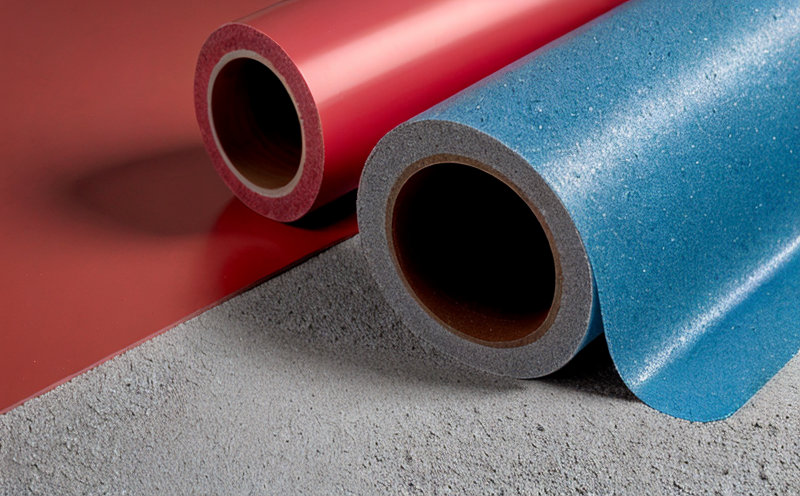FAA Oil Burner Test for Cargo Liner Panels
The FAA Oil Burner Test is a critical procedure designed to evaluate the fire resistance and safety of cargo liner panels used in aircraft. This test ensures that materials used within the cargo compartments meet stringent safety standards, thereby protecting passengers and crew from potential hazards during emergencies.
During an oil burner test, a controlled flame is applied to a specimen representative of the material intended for use in the cargo liner. The test aims to assess how well the material resists ignition and spreads of fire under conditions that simulate real-world scenarios such as those encountered in aircraft cargo holds. Compliance with this requirement is essential for manufacturers aiming to meet regulatory standards set forth by the Federal Aviation Administration (FAA).
The significance of this testing cannot be overstated; it plays a pivotal role in maintaining airworthiness and ensuring passenger safety. By adhering to FAA regulations, airlines can rest assured that their cargo liners are not only safe but also capable of withstanding harsh conditions without compromising structural integrity or causing further spread of fire.
In addition to the core testing procedure itself, there are several preparatory steps involved which ensure accurate results and reliable data. These include selecting appropriate samples for testing based on expected usage patterns within different types of aircraft; preparing these samples according to specified dimensions; ensuring all materials used in manufacturing comply with applicable fire retardant requirements; calibrating equipment prior to use; and maintaining strict control over environmental factors such as temperature, humidity, and atmospheric pressure throughout the test.
Once conducted successfully, successful completion of this rigorous evaluation allows manufacturers to claim compliance with FAA standards for their products. Such certification is crucial not only from a regulatory perspective but also serves as evidence supporting claims made about product performance in marketing materials or technical documentation provided during sales processes.
The importance of accurate and repeatable testing cannot be overstated when it comes to ensuring the safety and reliability of materials used within aircraft cargo compartments. At Eurolab, we employ state-of-the-art facilities equipped with advanced instrumentation capable of simulating various fire scenarios necessary for comprehensive evaluation. Our experienced staff ensure every aspect of the process is carried out meticulously, delivering reliable results that meet or exceed expectations.
For quality managers, compliance officers, R&D engineers responsible for developing new materials or improving existing ones; as well as procurement teams involved in sourcing suitable products - understanding this test procedure and its implications is crucial. It provides insight into the rigorous standards required by aviation authorities worldwide while highlighting key considerations when selecting appropriate materials for use within aircraft cargo systems.
- Ensures compliance with FAA regulations, which are essential for maintaining airworthiness and passenger safety.
- Provides reliable data that supports claims about product performance in marketing materials or technical documentation provided during sales processes.
- Highlights the need for accurate and repeatable testing to ensure consistent quality across production batches.
Applied Standards
The FAA Oil Burner Test is governed by specific standards that dictate how specimens are prepared, tested, and evaluated. These include:
- ASTM E648-15: Standard Practice for Preparation of Wood Plank and Rib Specimens from Timber Structural Members
- FAA Technical Order (TO) 9070.3B: Aircraft Fire Protection
- ISO/IEC Guide 98-2: Good Laboratory Practice in Chemical Testing
The FAA TO provides detailed guidance on the procedures and criteria used during testing, emphasizing the importance of accurate documentation and reporting throughout the process. Compliance with these standards ensures that results are consistent and reliable across different laboratories conducting similar tests.
Eurolab Advantages
At Eurolab, we pride ourselves on delivering high-quality services tailored specifically to meet the unique needs of our clients. When it comes to performing FAA Oil Burner Tests for cargo liner panels, here’s why you should choose us:
- Expertise and Experience: Our team consists of highly trained professionals who possess extensive experience in conducting various types of fire tests according to international standards.
- State-of-the-Art Facilities: Equipped with cutting-edge instrumentation, our laboratories provide an environment conducive to producing accurate and consistent results.
- Comprehensive Reporting: Beyond mere pass/fail outcomes, we offer detailed reports that include all relevant data collected during testing, providing valuable insights into the performance characteristics of each specimen tested.
Competitive Advantage and Market Impact
The FAA Oil Burner Test is not just a regulatory requirement; it represents a significant competitive advantage for manufacturers who can demonstrate compliance with these stringent standards. Here’s how adhering to this test contributes positively towards market positioning:
- Enhances reputation and builds trust among customers seeking assurance that their chosen materials are safe and reliable.
- Puts you ahead of competitors by establishing yourself as a leader in meeting regulatory requirements, thus gaining competitive edge.
- Attracts more business from airlines and other industry stakeholders looking for suppliers committed to maintaining the highest level of safety standards.





